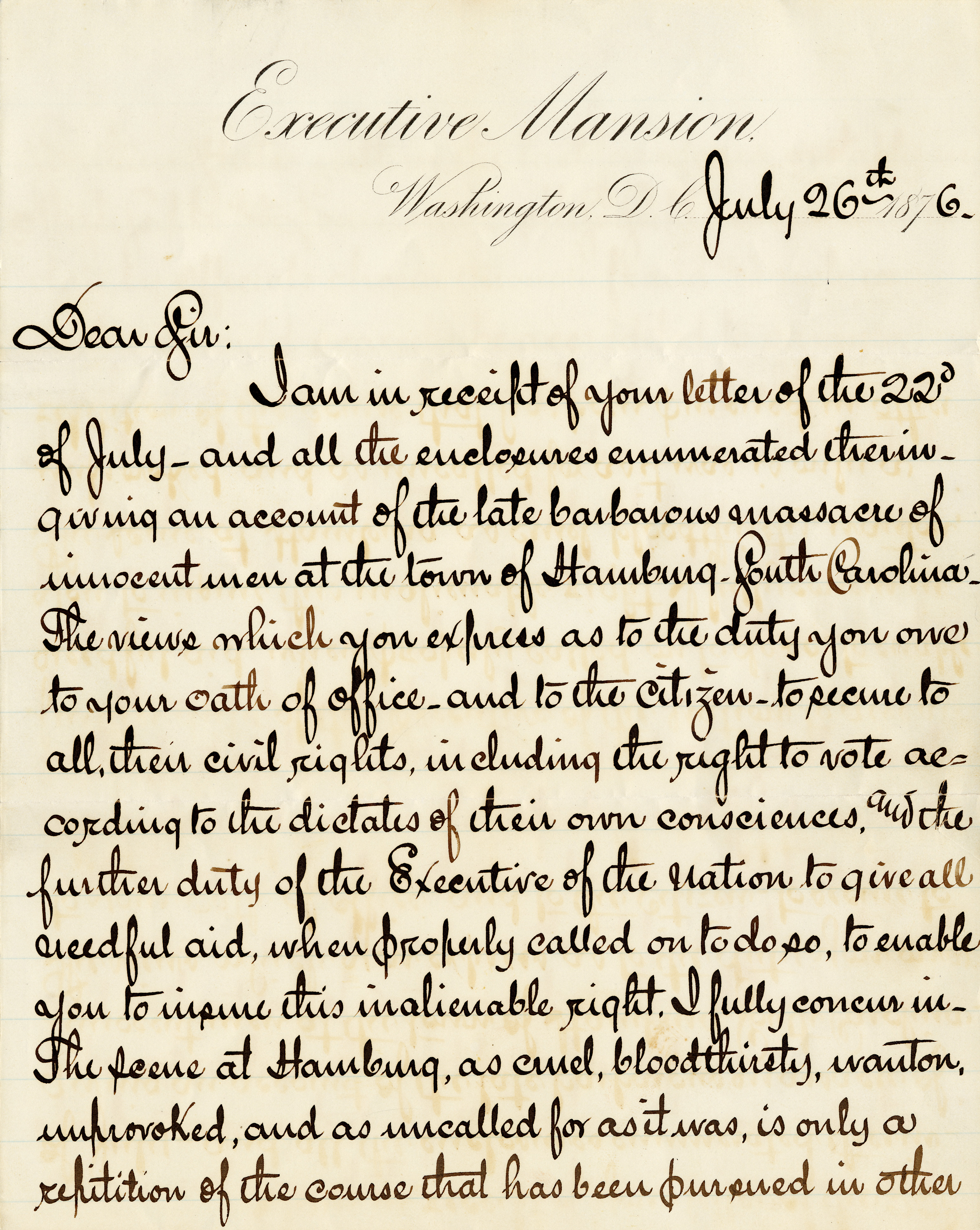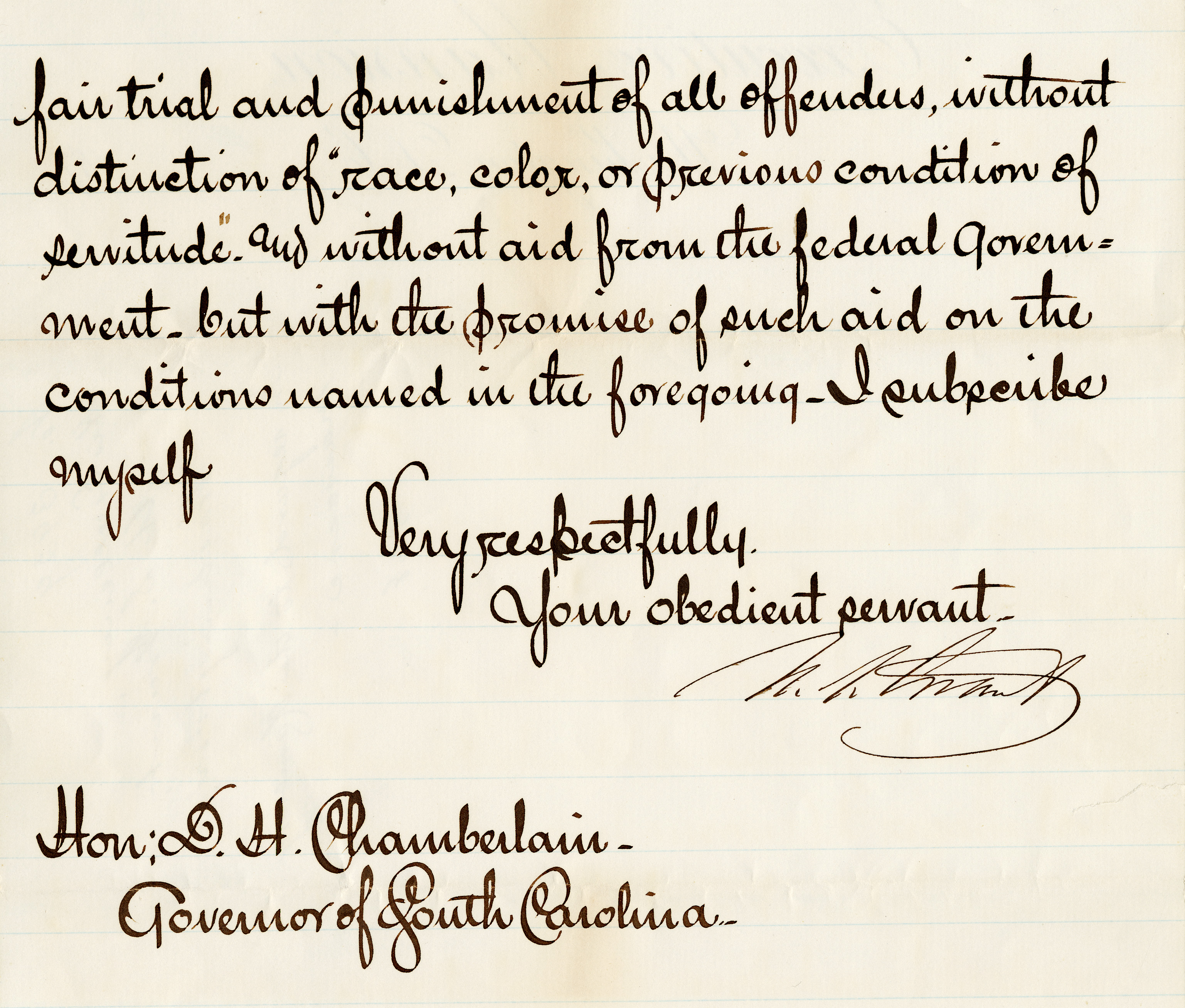In 1876, the failures of Reconstruction era efforts were laid bare as incidents of racial violence escalated and flared. In July, the first of a series of atrocities, many of which were planned to disrupt Republican meetings and suppress Black voting through actual and threatened violence, occurred in Hamburg, South Carolina. Six Black men were murdered, while several more were wounded by a White mob. Although 94 White men were indicted for murder by a jury, none were prosecuted.


